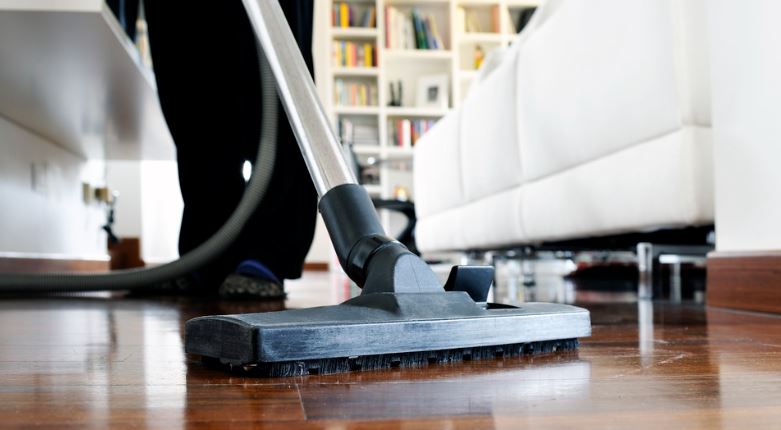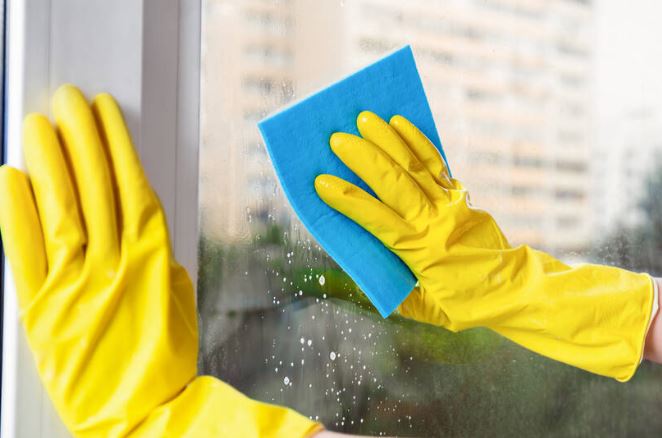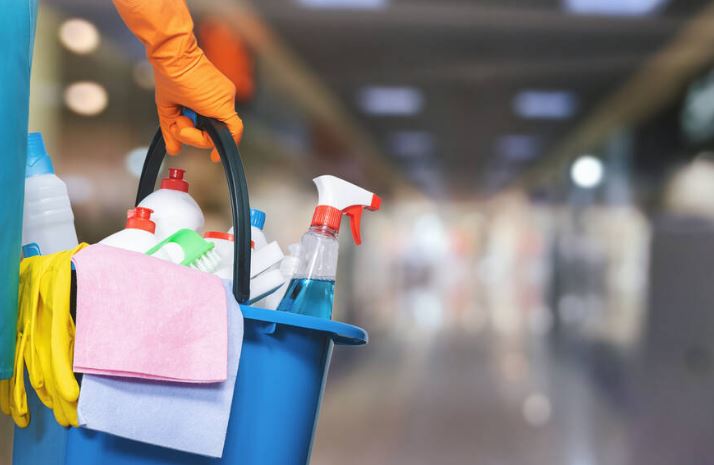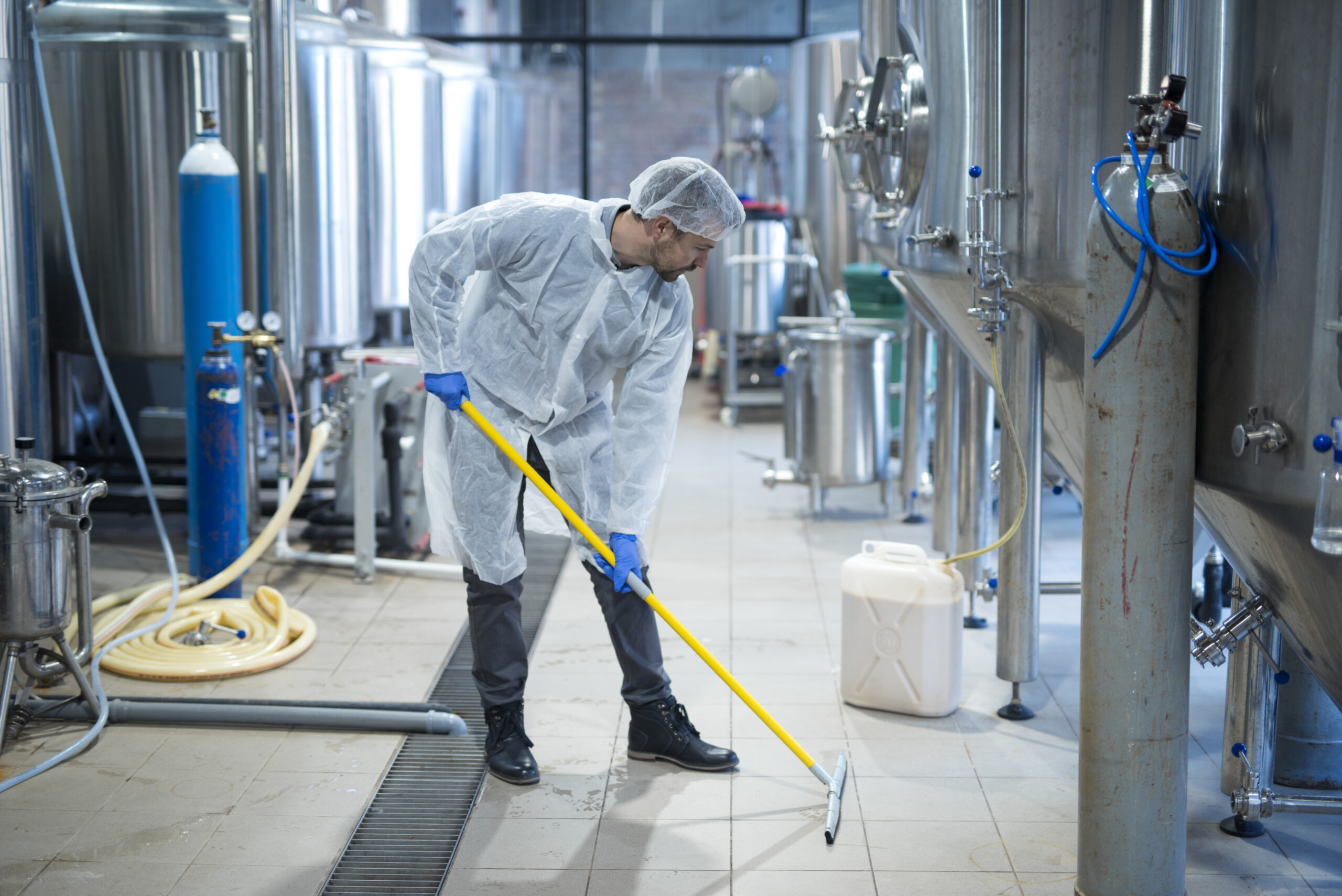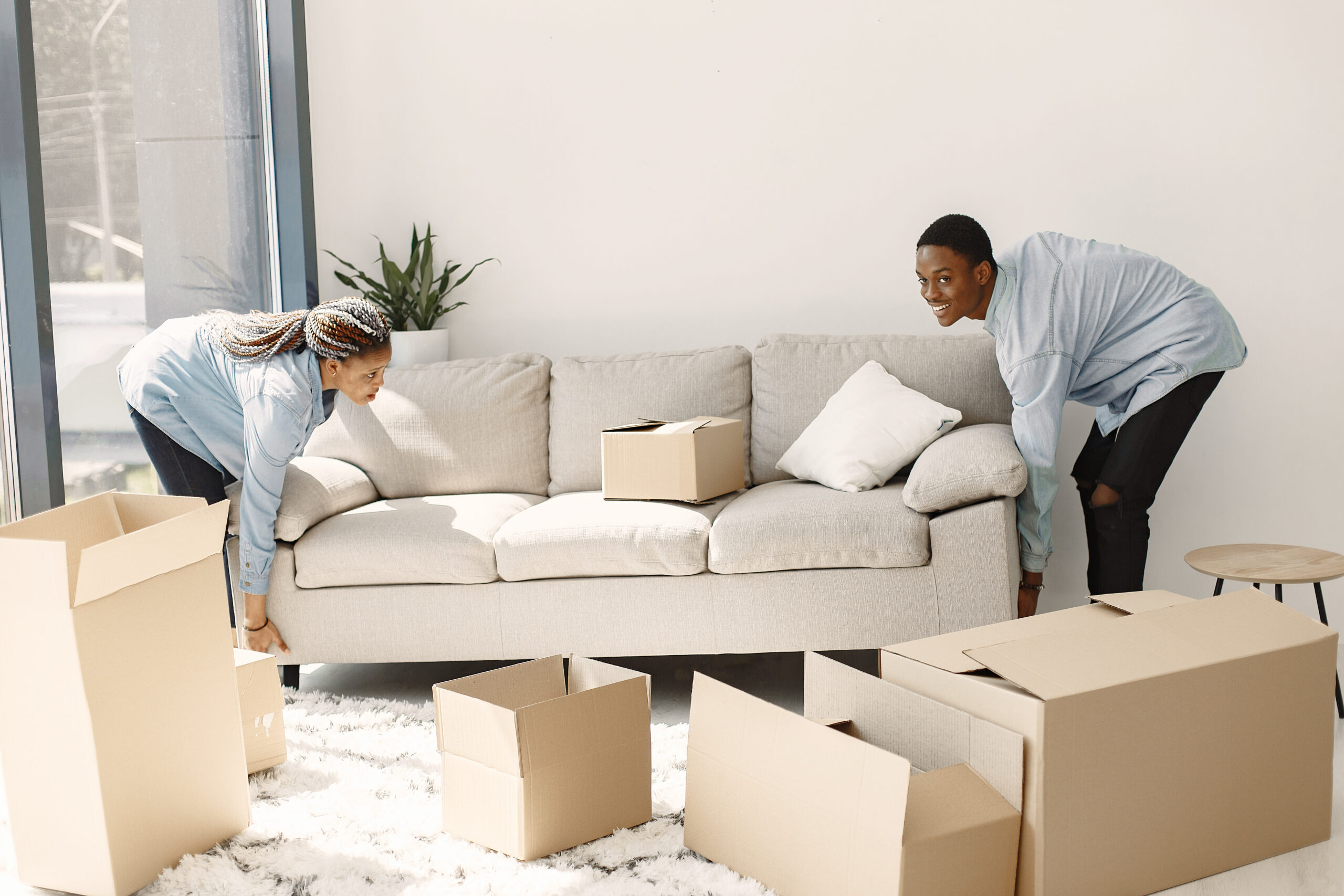October 15, 2025
The Complete Guide to Cleaning: Home, Office & Beyond
Everyone needs cleaning, but only a few enjoy doing it. Whether it’s keeping your home cozy, your office spotless, or your rental property welcoming for new tenants, cleaning plays a big role.
Increasingly, people are turning to professional cleaning services to save time and maintain good hygiene and aesthetics.
In this complete guide, we break down everything you need to know about cleaning, from domestic and office to deep and end-of-tenancy.
We’ll also address a lot of questions you might have about each type of cleaning, giving you a deeper look into what it takes to keep your property spotless and welcoming.
What Are Professional Cleaning Services?
Professional cleaning services are provided by trained cleaners who use professional-grade tools, techniques, and products to maintain:- Homes
- Offices
- Commercial spaces
Why People Hire Professional Cleaners
People in Birmingham and the surrounding areas hire professional cleaners to save their time and energy. When you have one more job off your plate, you can better focus on stuff that matters more. Plus, let’s face it: Effective and thorough cleaning requires experience. Ensuring hygiene standards can be difficult with household supplies. Professional services bring reliability, consistency, and peace of mind.Domestic Cleaning
What Does a Domestic Cleaning Service Include?
Domestic cleaning services typically include dusting, vacuuming, mopping, bathroom cleaning, kitchen surface cleaning, and emptying bins. But the exact list of services will vary from company to company; some offer extras like laundry, ironing, and oven cleaning. The cleaning frequency can be tailored to your lifestyle, cleaning needs, and property size, whether you need a weekly tidy-up or a full deep clean before hosting guests.How Often Should I Book a Domestic Cleaner?
The right cleaning frequency would depend on your lifestyle, whether you live with pets or children, and your preferences. Weekly or biweekly cleaning schedules work for most people in Birmingham. Smaller households may prefer a fortnightly visit. Deep cleaning, however, is ideal every three to six months; the main goal here is to tackle spots missed during routine cleans.How Much Does a Domestic Cleaner Cost in Birmingham?
The exact cost can vary depending on the cleaner’s experience, the company’s reputation, and the job. Larger homes or those requiring deep cleaning may incur higher costs. However, on average, you can expect to pay anywhere between £15 and £25 per hour for domestic cleaning services in Birmingham.What’s the Difference Between Domestic and Deep Cleaning?
Domestic cleaning focuses on maintaining day-to-day cleanliness, which includes dusting, vacuuming, and keeping visible surfaces clean. Deep cleaning, on the other hand, targets areas often ignored by regular cleaning, such as behind appliances, inside ovens, and under furniture. It’s more thorough and takes longer, making it ideal for seasonal refreshes, moving in/out, or after renovation work.Do Cleaners Bring Their Own Supplies and Equipment?
Yes, most professional cleaners bring their own cleaning products, which include disinfectants, vacuums, mops, and microfiber cloths. However, it’s always a good idea to double-check with the cleaning company. This is especially important when you want them to use specific tools or techniques, such as allergy-safe solutions.How Long Does a Typical Domestic Cleaning Take?
For an average-sized home, an average domestic cleaning session can take anywhere between 2 – 4 hours. However, the exact time depends on the number of rooms, their condition, and the nature of tasks. One-off cleans or deep cleans often take longer, especially if your space hasn’t been cleaned for multiple weeks.Can I Book a One-Off Domestic Cleaning?
Yes, you can. Many cleaning companies in Birmingham offer one-off cleaning services. You can utilize these services for special occasions, move-ins, or post-renovation cleanups. One-off domestic cleaning is a perfect way to refresh your space without committing to a regular schedule. It’s also great if you want to test a cleaning company before arranging a long-term deal.Are Domestic Cleaning Services Worth It?
Yes, domestic cleaning services take the burden off your shoulders; they clean your home thoroughly, so you don’t have it. For busy professionals, parents, or elderly people, outsourcing cleaning tasks means a consistently healthy living space without the stress and effort. It’s a cost-effective ongoing investment that protects your home’s value and frees up time for what really matters.How to Clean a Dirty House in 2 Hours?
Cleaning a dirty house in 2 hours may seem difficult, but you can do it with proper planning. The key is to start with high-impact areas: Clear clutter and start a quick vacuum or mop. Wipe down kitchen counters and bathroom surfaces. For speed and efficiency, use multi-surface cleaners and microfiber cloths.How Do Professionals Deep Clean a House?
Professional cleaners follow a systematic approach: They usually start from the top (Ceilings, light fixtures) and move down the floors. They disinfect surfaces, clean appliances, scrub tiles, and polish fixtures. These cleaning tasks often involve tools like steam cleaners and carpet extractors.How Often Should Each Room in a House Be Cleaned?
- Kitchen: Daily surface wipes, deep clean weekly
- Bathroom: Wipe daily, disinfect weekly
- Bedrooms: Dust and vacuum weekly
- Living room: Dust and vacuum weekly
- Windows: Every 1–2 months
- Oven/Appliances: Every 3–6 months.
How to Keep a House Clean After Deep Cleaning?
A deep clean ensures almost every nook and cranny of your home is clean and hygienic. However, if you want to make sure every remains that way for a long time, adopt small daily habits. Make the bed, wash dishes promptly, and wipe spills as they happen. Set aside 10 – 15 minutes daily for tidying prominent areas of your home. Use doormats to keep dirt outside and vacuum carpeted areas regularly. These small actions may seem insignificant, but over time, they can help preserve that “Just-cleaned” feeling for weeks after a professional deep clean.What To Do Before House Cleaners Come?
Secure valuable and personal items and declutter the surfaces. Organize the counters and floors so cleaners can focus on cleaning rather than organizing. If you have pets, try to keep them in a separate room. Plus, communicate your priorities to your cleaners in advance for better, more efficient results.How To Clean Kitchen Cabinets?
Kitchen cabinets are probably the roughest cleaning job in any home. But keeping each one of them neat and clean is crucial for overall health and hygiene. In a nutshell, here’s how you can clean your kitchen cabinets yourself: Start by wiping cabinets with warm, soapy water. For grease buildup, use a baking soda paste or a degreaser. To prevent streaks, use a dry microfiber cloth. Don’t soak wooden cabinets. Lastly, polish the cabinets with a wood conditioner for a smoother finish.How to Clean a Kitchen Sink?
If you’re like most homeowners, you need your kitchen sink clean and clear all the time. But sink maintenance can easily become overwhelming, especially if you don’t do it right. Here’s a quick guide: Start by sprinkling baking soda in the sink, scrub with a soft sponge, then rinse with warm water. What do you do for limescale removal? Simply use vinegar. You can use a mild bleach solution to disinfect your kitchen sink. Give special attention to the drain area and faucet; those harbor the most bacteria.How to Clean a Carpet?
Start by removing the surface dirt; use a carpet cleaner or a vinegar-and-water solution for stains. Blot stains, don’t rub, and let the air do the drying. For deep cleaning, go with steam cleaning or hire professional carpet cleaners.Office Cleaning
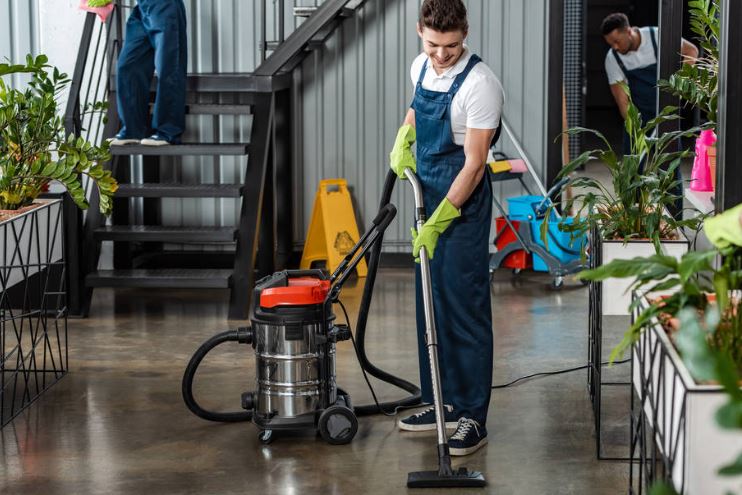
What is the Meaning of Office Cleaning?
Office cleaning refers to the regular maintenance and sanitization of workspaces to ensure a healthy and welcoming environment. It usually includes cleaning desks, floors, restrooms, and communal areas like kitchens and meeting rooms. The goal of office cleaning isn’t just to make the office look presentable, but also to improve the hygiene, boost employee productivity, and create a welcoming atmosphere for clients.How Do You Professionally Clean an Office?
Follow a structured approach. Start by removing clutter, emptying bins, and dusting all surfaces (Desks, shelves, and electronics). Next, vacuum or mop floors, sanitize restrooms, and clean glass doors and windows. To prevent the spread of germs, disinfect high-touch areas like light switches, keyboards, and door handles. Preferably, use eco-friendly cleaning products to ensure a safe work environment. What are the Different Types of Office Cleaning? Office cleaning can be categorized into the following main types:- Daily Cleaning: Routine tasks like vacuuming, wiping surfaces, and emptying bins
- Deep Cleaning: More intensive cleaning that targets carpets, upholstery, and hard-to-reach areas
- Sanitization and Disinfection: Focused cleaning to kill bacteria and viruses
- Window and Floor Cleaning: Specialized services to maintain appearance and safety
What are the Responsibilities of an Office Cleaner?
An office cleaner keeps workspaces hygienic and presentable. Their duties typically include floor mopping, wiping desks, sanitizing restrooms, vacuuming carpets, and more. Rubbish removal, spot-cleaning glass partitions, and keeping different parts of an office tidy are also managed by a professional office cleaner. The exact job depends on what the cleaner offers and the needs of the workspace.How Long Should It Take to Clean an Office?
The time it takes to clean an office mainly depends on its size, layout, and the number and nature of tasks involved. A small office (under 1000 square feet) will take less time (Around 1 – 2 hours), while larger spaces or multi-floor buildings may require 3 – 6 hours or even more. If you need deep cleaning or sanitization services, expect that time to increase further as they need detailed attention to every area, including carpets, vents, and restrooms.How Often Should an Office Be Cleaned?
For high-traffic environments, daily or alternate-day cleaning is often the right frequency. Wiping of desks and communal areas should be a daily practice, while a weekly or biweekly schedule is fine for windows and carpets. If you want to prevent the buildup of dust or bacteria and maintain high hygiene standards, schedule a professional deep clean every few months.What Does General Office Cleaning Consist Of?
General office cleaning covers the essential tasks that keep your space neat and hygienic. This includes vacuuming floors, wiping desks, cleaning glass, sanitizing restrooms, and dusting furniture. It also involves cleaning communal spaces such as break rooms, kitchens, and reception areas. The goal is to make the environment tidy and welcoming for everyone (visitors, staff, and clients).What is the Daily Cleaning Checklist for Offices?
A typical daily office cleaning checklist includes:- Emptying waste bins and replacing liners
- Dusting and wiping desks, shelves, and equipment
- Vacuuming or mopping floors
- Cleaning and disinfecting restrooms
- Wiping down kitchen counters and appliances
- Sanitizing door handles, switches, and shared surfaces
- Checking and refilling restrooms and kitchen supplies
How Much Can a Cleaner Do In One Hour?
This often depends on the type of cleaning required, the level of clutter, and the experience of the cleaner. However, you can expect a professional cleaner to clean 300 – 500 square feet. A quick tidy-up, for instance, may cover a few desks and a restroom, while deep cleaning includes tasks like sanitizing equipment and scrubbing tiles, which may take longer. The efficiency can also depend on the tools available.What is the First Step of Cleaning an Office?
The first step in cleaning an office is to organize and declutter the space. Removing cups, papers, and personal items from desks allows direct access to surfaces. Next, your cleaning team will empty bins to prevent odor buildup. After decluttering, your cleaner begins dusting, wiping, and disinfecting. The goal is to ensure every surface is cleaned and nothing is overlooked.How Do I Create a Cleaning Schedule for My Office?
Start by assessing your office’s size, staff count, and usage frequency. Pinpoint high-traffic areas like restrooms and meeting rooms that need daily attention. Then, create a list of tasks and divide them into daily, weekly, and monthly categories. For instance, you can vacuum daily, but window cleaning is often a monthly cleaning task. You can manage the schedule yourself or hire a cleaning company like AblePro Cleaning Ltd to do it for you.Deep Cleaning
What Does a Deep Cleaning Consist Of?
It goes beyond regular cleaning and surface wiping. Deep cleaning involves scrubbing, disinfecting, and removing dirt from hard-to-reach and hidden areas that accumulate dirt over time. These include behind furniture, skirting boards, tile grout, kitchen appliances, and bathrooms. The process also covers areas like vents, window sills, and light fixtures. Any place that’s overlooked or skipped during regular cleaning.How to Deep Clean an Entire House?
Start by decluttering each room to make cleaning easier. Begin from top to bottom; dust ceilings, fans, and shelves before vacuuming or mopping floors: scrub and clean bathrooms and kitchens, including tiles, sinks, and the insides of appliances. Use disinfectants on high-touch surfaces and vacuum upholstery and carpets.How Long Does It Normally Take to Deep Clean a House?
The duration depends on the home’s size and condition; a small apartment may take 3 – 5 hours, while a larger house can require 6 – 8 hours or even more. Professional and experienced cleaners working in teams usually complete deep cleans sooner. Keep in mind that your kitchen and bathroom may take the most time due to grease and limescale buildup.How Often Should a House Be Deep Cleaned?
Consider deep cleaning your house every 3 to 6 months. If you have children, pets, or are allergic to dust, you might need more frequent deep cleans. Regular cleaning also plays a part here; regular upkeep, like weekly vacuuming and wiping, helps maintain cleanliness, which can reduce the need for frequent deep cleaning.Is It Worth Getting Your House Deep Cleaned?
Yes, deep cleaning is absolutely worth it; it removes bacteria, allergens, and hidden dust that regular cleaning often overlooks. Deep cleaning improves air quality and helps extend the life of flooring, appliances, and furniture. Plus, a professionally deep-cleaned home feels fresher, looks more aesthetic, and makes the environment healthy for the residents.What is Not Included in a Deep Clean?
Deep cleaning doesn’t typically include tasks like wall washing, outdoor areas like driveways, and window cleaning. Repairs, heavy lifting, or waste disposal are also often beyond the scope of a deep clean. Moreover, services like carpet steam cleaning or upholstery shampooing may cost extra. However, the exact list of deep cleaning tasks depends on the cleaning company’s packages.Can I Do My Own Deep Cleaning At Home?
You can, but deep cleaning requires time, effort, and professional tools. If you want to go the DIY route, start small; clean one room at a time, and use suitable cleaning agents for each surface. Plus, always wear gloves, ventilate rooms, and keep microfiber cloths, brushes, and disinfectants with you. Even if you do have all the tools and know all the techniques, a professional cleaning company can better take care of the job. They have industrial-grade equipment and products that deliver better, longer-lasting results, not to mention the experience and expertise they carry with them.What is the Best Time of Year for Deep Cleaning?
Spring and autumn are the best times for deep cleaning. In spring, a deep clean refreshes your space after winter, clearing dust and stale air. Whereas an autumn deep clean prepares your home before the colder months, when you spend more time indoors. Having said that, you can schedule a deep clean anytime your home feels dusty, cluttered, or unhygienic.What are the Disadvantages of Deep Cleaning a House?
As far as health, hygiene, and aesthetics are concerned, there are no disadvantages to a deep clean. The main challenge is that it takes time and effort; it can be physically and mentally demanding, especially if you have a large space. For some, the upfront cost of hiring professional cleaners might seem high as well, but the results, in hygiene, comfort, and aesthetics, often justify the investment.How Many Times a Month Should Every Room Be Deep Cleaned?
You don’t need a deep clean every month, or even every 3 months. It essentially depends on your specific needs. If you have pets or children, your rooms might need more frequent cleaning. To stay consistent, what you can do is follow a rotation: Clean kitchens and bathrooms once a month and bedrooms and living areas every 2 – 3 months; clean less-used rooms once or twice a year, depending on their condition.What to Do Before Deep Cleaning a Home?
Preparing your home before deep cleaning helps speed up the process and make it efficient. Start by removing clutter and clearing surfaces so your cleaning company can access all areas easily. Plus, empty bins, strip beds, and wash dishes. Secure valuables and inform the cleaners of any fragile items they should be careful about.What Room Should You Deep Clean First?
The kitchen often has the most grime and grease buildup, so start there. Once that’s done, move on to bathrooms, then bedrooms, and then living areas. The goal is to work from the dirtiest to the cleanest rooms; it prevents cross-contamination.Which Part of the House Takes the Longest to Clean?
Kitchens and bathrooms usually take the longest because of grease, mineral deposits, and soap scum. Appliances, tiles, and fixtures need more scrubbing and disinfecting than other areas of your house. Spaces with heavy traffic or clutter, such as a living room or an entryway, may also require extra time for a thorough cleanup.What Happens If You Never Clean Your Room?
If you neglect a room for too long, it can lead to dust buildup, odors, and even mold growth. Over time, allergens and bacteria can accumulate, making your room a source of several potential health issues. A dirty and cluttered environment also impacts your mood, focus, and productivity. Keeping a room neat and clean maintains a healthy, pleasant space that’s easier to manage in the long run.Is It Unhealthy to Live in a Dusty House?
Yes, living in a dusty house can trigger allergies and respiratory problems. Dust contains allergens like pollen, pet dander (If you have pets), and even microscopic pests such as dust mites. Prolonged exposure can lead to throat and eye irritation. Doing regular vacuuming, using purifiers, and deep cleaning reduces the risks and makes your space healthier.End of Tenancy Cleaning
How Does End-of-Tenancy Cleaning Work?
End-of-tenancy cleaning involves a top-to-bottom deep clean of a rental property before a tenant moves out. The goal of this type of cleaning is to return the home to its original condition so that the tenant can recover their deposit from the landlord. End-of-tenancy cleaning typically involves rooms, appliances, carpets, and fixtures; it ensures everything meets the landlord’s or agency’s inspection criteria.Is It Worth Getting an End-of-Tenancy Clean?
Yes, professional end-of-tenancy cleaning is completely worth it. It saves time, ensures the property meets letting standards, and maximizes the chances of getting the full security deposit back. You can have your cleaning company provide receipts or completion reports as proof of service, which you can then show to the landlord.Do Tenants Have to Clean Carpets When Moving Out?
As a tenant, you usually have to leave carpets in the same clean condition as when you moved in. However, cleaning carpets becomes a necessity if the tenancy agreement specifies professional carpet cleaning before vacating. Even when not required, professional carpet cleaning removes stains, odors, and dust mites, leaving a good impression during inspection.Do You Have to Clean Windows at the End of Tenancy?
Yes, you should clean windows inside and out (If safely accessible); landlords often check for streaks, dust, and cobwebs on window sills and frames. If you hire a professional end-of-tenancy cleaning company, they’ll most likely include window cleaning as part of the package.How Clean is a Seller Required to Leave the House After Moving Out?
A departing tenant or a seller needs to leave the property in a “Reasonably clean” condition. This means all surfaces should be wiped clean, bathrooms should be sanitized, and no rubbish or personal items should be there. A deep clean isn’t always necessary at the end of a tenancy agreement, but leaving the home tidy avoids potential post-move disputes and shows respect.How to Avoid End-of-Tenancy Cleaning Disputes?
The best way to avoid end-of-tenancy disputes is to take detailed “Before-and-after” photos of the property. Plus, keep cleaning receipts with you and follow the inventory checklist closely. As a tenant, understand what your landlord expects from you. Only hand over the keys after a joint inspection confirms everything is in order.Do I Have to Pay for Cleaning When I Move Out?
It depends on your tenancy agreement; if it says you’re responsible, you’ll have to pay and arrange it. Otherwise, a tenant can clean the property themselves, as long as it meets the inspection standards. Leaving the property dirty and different from how it was handed to you can lead to deductions from your deposit.Who Pays for End-of-Tenancy Cleaning?
The tenant usually pays for the end-of-tenancy cleaning unless the property owner offers it as part of their move-out process. Note that the cost can be legally deducted from a tenant’s deposit if the property was dirty and the landlord has to arrange a cleaning service.Choosing the Right Cleaning Service
What Should You Look for in a Professional Cleaning Service?
When choosing a cleaning company, consider trust, quality, and transparency. Look for vetted and reliable cleaners you can trust with your property. Reputable cleaning companies in Birmingham, UK, and the surrounding areas offer satisfaction guarantees and detailed checklists for each service.How Do You Compare Different Cleaning Companies in Birmingham?
Check their online reviews, testimonials, and Google ratings to gauge their credibility in the area. Compare the range of services they offer. Request detailed quotes, and see if they bring their own supplies and equipment.What Questions Should You Ask Before Hiring a Cleaner?
Before booking a cleaner in Birmingham, ask key questions such as:- Are your cleaners background-checked and insured?
- What’s included in your standard cleaning package?
- Do you provide cleaning products and equipment?
- How do you handle damages or complaints?
- Can I customize the cleaning schedule or tasks?
